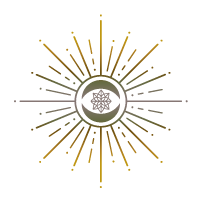Core Beliefs and You
We are not responsible for the world that created our minds, but we can take responsibility for the mind that creates our world. Gabor Mate’
Our core beliefs dictate the rules we live by in our daily lives; we all have them and are created in the early years of our lives; they are based on our thoughts about our experiences, the things we see other people do, and the advice from other people's experiences.
I have been doing a lot of work with Dr. Gabor Mate, a medical and therapeutic doctor who has worked in addiction and trauma, AND he started working with his medical patients because he noticed the link between our emotional world and physical illness world.
While in training, I realized that one of my beliefs of "I need to be strong and responsible" was because of a separation from my Mom early on. While my Mom will tell you that I had no emotion about the experience and took the news with a kind of stoicism that a five-year-old could hold, what I have now come to realize and recognize is that I held it together for the sake of her, and wanting her to be ok, which has had me believe that I need to be strong and responsible for everyone.
I am ultimately creating a hard exterior and a belief that I can hold a lot AND be responsible for other people's emotions.
Our core beliefs are how we see ourselves, others, the world, and the future.
A few core beliefs might be:
I am bad.
I am intelligent (I will succeed if I try)
I am unlovable. (Nobody appreciates me)
People are untrustworthy (people take advantage and hurt me if they have a chance)
The world is dangerous/not safe.
Our Core beliefs sit in the basement of our mind, and the deepest level of our body, our nervous system. Our bodies are our subconscious minds.
Beliefs are like preset programs in the mind that launch emotional reactions when activated. Your thoughts interpret a situation automatically and give your nervous system a response of emotion and justification without asking you if you want to consider alternatives.
Because every road of our lives leads back to our childhood programming (not making parents/caregivers wrong here), it is there that we must go back and check if these beliefs are true.
Our core beliefs are not who we are; they are beliefs we developed to survive the story, the event, and the environment we had as a child.
It is what we do to make sense of and meaning of our lives at the time, and we find experiences that validate our stories.
My Mom did not tell me (at least I do not remember) that I needed to be strong or responsible for her or anyone else; however, there may have been an energy that I felt or unwittingly picked up on that gave me the belief that I needed to be strong and responsible or love and acceptance would be scarce or gone for good.
Our core beliefs have many effects on our lives. How we live in our bodies, a person who believes they are unlovable will often not date and therefore miss romantic opportunities or a person with the core belief the world is untrustworthy will conjure up negatives in others when they don't exist, causing them to miss out on new experiences, and relationships.
Core beliefs can also affect personality. For example, a 2022 study of young adults found that participants who displayed more greed were also more likely to hold negative core beliefs, such as that they were unlovable. This core belief suggests that greed might be a misdirected attempt to find love or approval through material wealth.
Our subconscious mind forms our beliefs, and our bodies store all of our subconscious thoughts, experiences, or ideas we have had over a lifetime to control our behavior.
Therefore, when we push up against a new idea or possibility beyond what we have experienced, we may have bodily sensations OR even experiences. It may feel like we don't have a choice, and at that moment, you may not, but with support, you do. I can't get past this feeling because my nervous system is stuck.
The difference between those who fall short of creating what they want in life and those who do make what they want in life is the difference between those who cannot put themselves into a supportive state and those who consistently put themselves into a form that supports them in their life.
Our beliefs dictate how we react to an (adverse) event or situation and what we do with it.
How we work with beliefs:
• Noticing thoughts: Pay attention to automatic thoughts. These are the thoughts a person often does not notice. A person can note any consistent themes or patterns by becoming more aware of them.
• Keeping a journal or using your notes app: It can help to keep notes for several weeks to record thoughts and feelings. Focus on times of intense emotion or stress, such as following a fight with a loved one, and write down what ideas it sparked. After some time, review the notes to look for patterns. For example, a person might repeatedly have fears of being late.
• Asking questions: Once a person notices a pattern in their thoughts, they can explore the core beliefs underlying the thoughts. For example, a person who worries about being late might consider what happens if they are late, what it means about them, or why it matters. It could help them realize that they believe they must be perfect and that this matters because they are not likable if they are not perfect.
• Considering the evidence: Consider what beliefs a person has without evidence. The most difficult to change or challenge thoughts often link to core beliefs. It is probably a core belief if a person finds they cannot change a view despite having strong evidence that contradicts it.
Core beliefs are our most deeply held assumptions about ourselves, the world, and others. They are firmly embedded in our thinking, significantly shaping our reality and behaviors. Yet, as the name suggests, core beliefs are precisely that – beliefs rather than facts. Based on childhood assessments, they are often untrue. They are also self-perpetuating. Like magnets, they attract evidence that makes them more potent and repel anything that might challenge them. But the good news is that it is possible to change them.
Complete the statements below. Please do not spend long thinking about them; simply write what comes into your head.
I am
Other people are?The world is ?
Now think about these three statements. How do they make you feel?
When did you first become aware of these beliefs?
Which experiences shaped them?
Who in your life may hold similar views?
Write down three beliefs about yourself, other people, and the world which you would like to cultivate going forward:
Ask yourself: Do these beliefs still serve me? If not, which beliefs would be more constructive?
I am?
Other people are ?
The world is ?
Take some time and write this out ~ I would love to hear what you came up with and if these beliefs are serving you.
Much Love & Healing
Jenn

